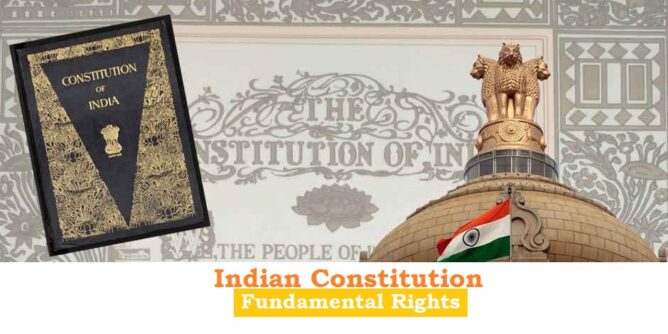
Covered in Article 12-35, called as the ‘Magna Carta of India’
They are fundamental in the sense that they are most essential for the all round development of the individuals.
They promote the idea of political democracy and prevent any arbitrary rule.
Fundamental Rights are protected and guaranteed by the constitution itself unlike legal rights are protected and enforced by ordinary law.
Further, Judiciary can declare any law unconstitutional (‘Judicial Review’) if it is inconsistent with the fundamental rights (Art 13)
However, they are not absolute and are subjected to restrictions such as public order, peace, morality, health, sovereignty and integrity of India etc. 2015 (08)
Thus, strike a balance between Individual liberty and social control.
Six fundamental rights are:
1. Right to Equality (Art 14-18)
2. Right to Freedom (Art 19-22)
3. Right against Exploitation (Art 23-24)
4. Right to Freedom of Religion (Art 25-28)
5. Cultural and Educational Rights (Art 28-30)
6. Right to Constitutional Remedies (Art 32)
1. Right to equality:
Art 14. Equality before law
‘Doctrine of Rule of Law’
Art 15. Prohibition of discrimination on certain grounds
Exceptions: women and children, backward classes (excluding ‘creamy layer’)
Art 16. Equality of opportunity in public employment
Exceptions: Reservation to ST/SCs, OBCs (right to equality of opportunity)
Art 17. Abolition of Untouchability
Disability imposed certain classes by reason of their birth in certain castes
Art 18. Abolition of titles
Hereditary titles of nobility
2. Right to Freedom:
Art 19. 6 Democratic freedoms 2013 (02)
Speech, assembly, association, movement, residence, profession (PARAMS)
Art 20. Protection in conviction for offences
Rights of accused: no retrospective laws, no double jeopardy, no self-incrimination
Art 21. Protection of life and personal liberty
Live with dignity, safe environment, shelter, information
Art 21A. Right to education
Compulsory education to children of 6- 14 years (in a manner as the state may determine)
Art 22. Protection against arrest and detention
Right to be informed the reason for arrest, to be produced before the magistrate within 24 hours, to be defended by a lawyer (Exception: Preventive Detention)
3. Right against Exploitation:
Art 23. Prohibition of traffic in human beings and forced labour including slavery, beggar, Devadasi
Art 24. Prohibition of employment of children in factories, etc
Below the age of 14 years in any kind of occupation (originally hazardous only)
4. Right to Freedom of Religion:
Art 25. Freedom of faith and worship
Religious rights of individuals
Art 26. Freedom to manage religious affairs
Religious rights of a group, religious institutions
Art 27. Freedom from taxation for promotion of any particular religion
Art 28. Freedom from attending religious instruction
No religious instructions in a state funded institution
5. Cultural and Educational Rights:
Art 29. Protection of interests of minorities
Right to conserve own language, script, culture
Art 30. Right of minorities to educational institutions
Saving of Certain Laws (Exceptions):
Saves certain laws from being challenged on the ground of contravention of fundamental rights
Art 31A. Acquisition of estates, etc.
Art 31B. Certain Acts and Regulations (of IX schedule)
Art 31C. Saving of laws giving effect to certain directive principles
6. Right to Constitutional Remedies:
‘heart and soul of the constitution’ (Ambedkar), Mechanism for enforcement of Fundamental Rights
Right to approach a High Court or the Supreme Court in case of violation
Power of courts to issue writs
Exceptions:
Art 33. Application to Forces, etc
Proper discharge of duties and maintenance of discipline
Art 34. Martial law is in force in any area
Military rule, indemnity provided during discharge of duties

 Home
Home Syllabus
Syllabus Contact Us
Contact Us
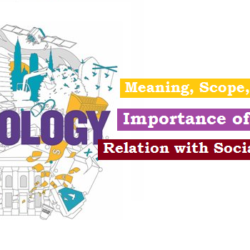
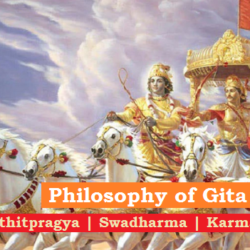
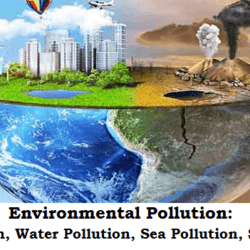
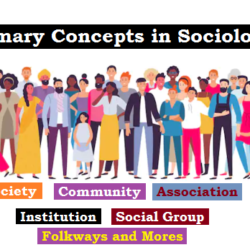
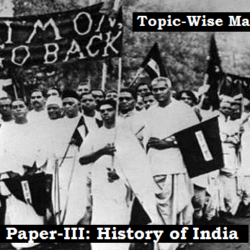
1 thought on “Fundamental Rights”